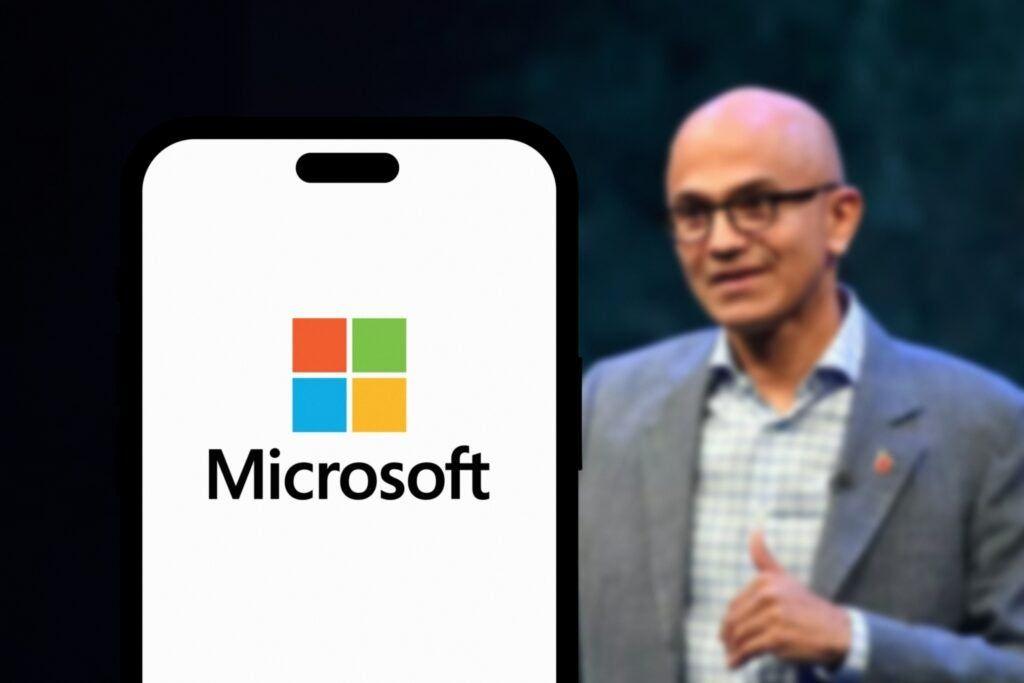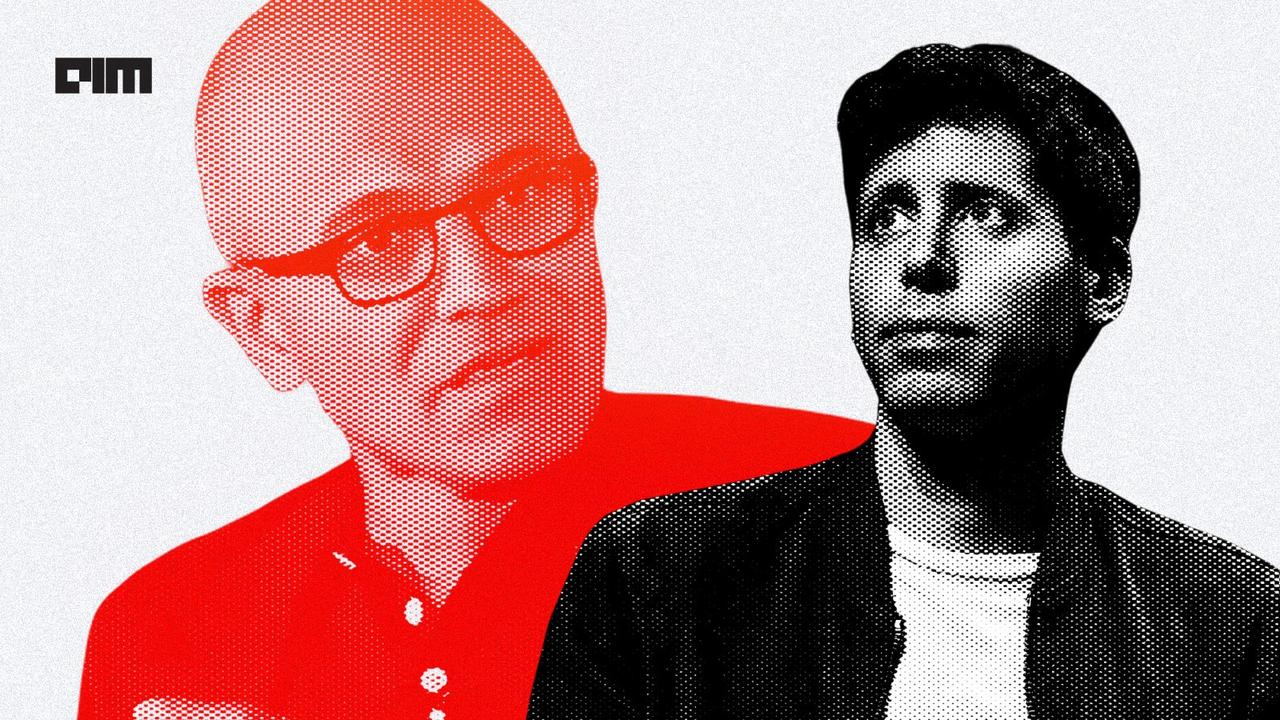Microsoft Partners with Harvard Medical School to Enhance AI-Powered Health Information
5 Sources
5 Sources
[1]
Microsoft Partners With Harvard Medical School To Bolster AI Sources: Report - Microsoft (NASDAQ:MSFT)
Microsoft Corporation (NASDAQ:MSFT) has partnered with Harvard Medical School to access its consumer health content on specific diseases and wellness topics, as the tech giant looks to diversify its artificial intelligence (AI) sources. Boost Copilot, Reduce OpenAI Reliance The upcoming version of Copilot, slated for release this month, will draw on material from Harvard Health Publishing to deliver answers on medical and wellness topics, as part of the company's broader strategy to reduce its dependence on ChatGPT-maker OpenAI, according to the Wall Street Journal. Microsoft will pay Harvard a licensing fee under the new partnership. Microsoft's health AI head, Dominic King, told WSJ that the goal is for Copilot to deliver credible, trustworthy, and accessible health information, similar to what users might receive from medical professionals, though he declined to discuss the Harvard partnership. Microsoft and Harvard did not immediately respond to Benzinga's requests for comment. AI Investments Ramp Up This partnership comes on the heels of Microsoft's plans to invest heavily in proprietary AI chip infrastructure, as revealed by AI CEO Mustafa Suleyman during an internal town hall meeting in September 2025. The move is aimed at achieving "self-sufficiency in AI" and reducing reliance on the $13 billion OpenAI partnership. The tech giant's decision to pay Amazon.com, Inc. (NASDAQ:AMZN) -backed Anthropic for AI features in Office apps was highlighted as a significant change in strategy by CNBC host Jim Cramer. Microsoft is integrating some of Anthropic's Claude models into Office 365 applications, marking a shift from its heavy reliance on OpenAI. Benzinga's Edge Rankings place Microsoft in the 74th percentile for momentum and the 97th percentile for growth, reflecting its strong performance in both areas. Check the detailed report here. READ NEXT: Arista Networks, Microsoft And Netflix On CNBC's 'Final Trades' Image via Shutterstock Disclaimer: This content was partially produced with the help of AI tools and was reviewed and published by Benzinga editors. MSFTMicrosoft Corp$523.70-0.22%OverviewAMZNAmazon.com Inc$224.75-0.21%Market News and Data brought to you by Benzinga APIs
[2]
Microsoft Looks Past OpenAI With Harvard Health Partnership | PYMNTS.com
The tech giant wants to become an AI chatbot force on its own, beyond its longtime partnership with OpenAI, The Wall Street Journal reported Thursday (Oct. 9). To that end, Microsoft is focused on healthcare as an area where it believes it can provide better service than other major players, while also boosting its Copilot assistant. A Copilot update due as soon as this month will be the first to reflect a new partnership between Microsoft and Harvard Medical School, the report said. This version of Copilot will glean information from the Harvard Health Publishing arm to respond to medical questions. Microsoft will pay Harvard a licensing fee. Dominic King, vice president of health at Microsoft AI, declined to discuss the partnership, according to the report. However, he said his company's goal is for Copilot to provide answers more similar to the information users might get from a medical practitioner than what is now available. "Making sure that people have access to credible, trustworthy health information that is tailored to their language and their literacy, and all kinds of things is essential," he said, per the report. "Part of that is making sure that we're sourcing that material from the right places." Experts have warned about depending on chatbots for medical advice. A study led by researchers at Stanford University and published last year showed that out of 382 medical questions posed to ChatGPT, the chatbot offered an "inappropriate" answer roughly one out of every five times, the report said. Kim Rippy, practice owner and licensed counselor at Keystone Therapy Group, told PYMNTS in July that clients have turned to ChatGPT or other AI systems for "substitute therapy," a trend she called "helpful and dangerous at the same time." For those with ADHD, ChatGPT can help them summarize or organize their thoughts. Still, the chatbot can never fully understand the patient's experience or pick up on things like nonverbal cues and tone the way a human therapist could, Rippy said. This month also saw Microsoft Chairman and CEO Satya Nadella announce he is turning over some duties related to the company's commercial business so that he and the firm's engineering leaders can be "laser focused" on AI work.
[3]
Microsoft plans healthcare AI push in Copilot with Harvard deal
Microsoft's (NASDAQ:MSFT) major update for AI tool Copilot, which is slated for release as soon as this month, will be the first to see a new collaboration between the company and Harvard Medical School, The Wall Street Journal reported, citing people with knowledge Copilot will use Harvard Health Publishing data to provide more credible and practitioner-like health information, helping users make informed healthcare decisions. Key risks include potential for inappropriate advice, especially for mental health topics, as AI chatbots have given wrong medical answers and sparked scrutiny over handling sensitive situations. By advancing its own AI models and reducing reliance on OpenAI, Microsoft aims for more technological independence, potentially increasing control and innovation but facing challenges due to OpenAI's consumer lead.
[4]
Microsoft inks healthcare AI deal with Harvard to cut OpenAI reliance- WSJ By Investing.com
Investing.com-- Microsoft Corporation (NASDAQ:MSFT) is collaborating with Harvard to improve health content in its Copilot AI assistant, as part of a broader push to wean itself off OpenAI, the Wall Street Journal reported on Wednesday. CoPilot will begin using Harvard Health Publishing information for healthcare queries with an update scheduled for later in October, the WSJ report said, citing people familiar with the matter. Microsoft will pay Harvard a licensing fee. Microsoft AI vice president of health Dominic King told the WSJ that the company's aim is for Copilot to serve answers that are more in line with information from a medical practitioner than anything currently on offer. A push into healthcare is also Microsoft's attempt to carve out its own niche in the highly competitive AI industry. Earlier this year, Microsoft AI said an AI tool it developed was able to diagnose diseases at a rate four times more accurate than a group of doctors, and at a fraction of the cost. Microsoft is also attempting to reduce its reliance on OpenAI for AI technology. While the two reached a tentative agreement to extend their partnership earlier this year, reports showed Microsoft was working rapidly on gaining technological independence from OpenAI. Microsoft said in August it was testing a homegrown AI model which could eventually be used in Copilot. The company also uses non-OpenAI models, such as rival Anthropic's Claude, in some of its products.
[5]
Microsoft to partner with Harvard in healthcare push to cut OpenAI reliance, WSJ reports
(Reuters) -Microsoft is partnering with Harvard Medical School to enhance its Copilot AI assistant with health content, as part of a broader effort to reduce its dependence on ChatGPT-maker OpenAI, the Wall Street Journal reported on Wednesday. A major update of Copilot scheduled for release as soon as this month will be the first to reflect a new collaboration between Microsoft and Harvard Medical School, the report said, citing people familiar with the matter. Reuters could not immediately verify the report. Microsoft and Harvard did not immediately respond to requests for comment. (Reporting by Rishabh Jaiswal and Rajveer Singh Pardesi in Bengaluru; Editing by Shailesh Kuber)
Share
Share
Copy Link
Microsoft is collaborating with Harvard Medical School to integrate credible health content into its Copilot AI assistant. This partnership aims to provide users with more reliable medical information and reduce Microsoft's dependence on OpenAI.
Microsoft's Strategic Partnership with Harvard Medical School
Microsoft Corporation has announced a groundbreaking partnership with Harvard Medical School, aimed at enhancing the capabilities of its AI assistant, Copilot, in delivering reliable health information
1
2
. This collaboration marks a significant step in Microsoft's efforts to diversify its AI sources and reduce its reliance on OpenAI, the creator of ChatGPT.
Source: Market Screener
Enhancing Copilot's Health Information Capabilities
The upcoming version of Copilot, scheduled for release this month, will incorporate content from Harvard Health Publishing to provide answers on specific diseases and wellness topics
1
. Microsoft will pay Harvard a licensing fee for this content, aiming to deliver more credible and trustworthy health information to users2
.Dominic King, Microsoft's vice president of health AI, emphasized the importance of providing access to reliable health information tailored to users' language and literacy levels
2
. The goal is for Copilot to offer information more akin to what users might receive from medical professionals.Addressing Concerns and Improving Accuracy
This move comes in response to growing concerns about the reliability of AI chatbots in providing medical advice. A study led by Stanford University researchers found that ChatGPT offered inappropriate answers to medical questions about 20% of the time
2
. By partnering with a reputable institution like Harvard Medical School, Microsoft aims to significantly improve the accuracy and credibility of its AI-generated health information.Related Stories
Microsoft's Broader AI Strategy
The Harvard partnership is part of Microsoft's larger strategy to achieve greater independence in AI development. The company has been investing heavily in proprietary AI chip infrastructure and exploring partnerships with other AI companies like Anthropic
1
4
.Microsoft is also developing its own AI models, with reports suggesting that the company is testing a homegrown AI model that could eventually be integrated into Copilot
4
. This move towards technological self-sufficiency in AI reflects Microsoft's commitment to innovation and its desire to carve out a unique position in the competitive AI landscape.
Source: Benzinga
Implications for the Future of AI in Healthcare
As Microsoft advances its AI capabilities in healthcare, it faces both opportunities and challenges. While the partnership with Harvard Medical School promises to improve the quality of health information provided by Copilot, experts caution against over-reliance on AI chatbots for medical advice
2
3
.The company's focus on healthcare as a key area for AI development could potentially revolutionize how people access and understand medical information. However, it also raises important questions about the role of AI in healthcare and the need for continued human oversight in medical decision-making.
References
Summarized by
Navi
[1]
[3]
[4]
Related Stories
Microsoft Unveils AI-Powered Healthcare Solutions to Revolutionize Patient Care and Streamline Operations
11 Oct 2024•Technology

Microsoft Develops In-House AI Models to Reduce Dependence on OpenAI
08 Mar 2025•Technology

Microsoft Collaborates with Leading Medical Institutions to Advance AI in Medical Imaging
25 Jul 2024

Recent Highlights
1
Google Gemini 3.1 Pro doubles reasoning score, beats rivals in key AI benchmarks
Technology

2
Meta strikes up to $100 billion AI chips deal with AMD, could acquire 10% stake in chipmaker
Technology

3
Pentagon threatens Anthropic with supply chain risk label over AI safeguards for military use
Policy and Regulation





